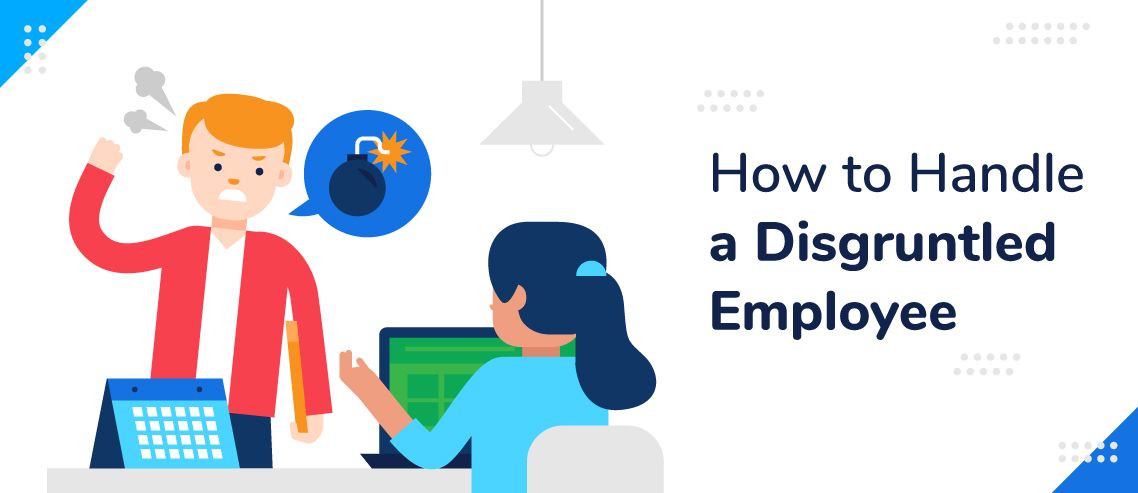The Secrets to Pure Happiness at Work in 2024

Happy people are better workers. They’re 47% more productive, have 180% more energy, and are 82% more satisfied with their work than unhappy employees. This can increase organizational productivity, which is a win-win for any company.
Unfortunately, employee happiness has been steadily declining at a rate of 6% per year since 2020, with a steep decline of 9% from Q1 to Q2 of 2023 acording to a study from BambooHR. This means that employee morale is worse than ever.
If your employees have been struggling with a sense of resignation or apathy when thinking about their jobs, it’s time to make them happy.
But how? Well, let’s explore the secrets to workplace happiness and check out some tips to get your team feeling better day by day.
How Is Happiness at the Workplace Defined?
Happiness at work (HAW) or workplace happiness (WPH) is a state of feeling good about your job, its responsibilities and characteristics, and your organization. It is associated with a high level of positive emotions, life satisfaction, and happy experiences that make your work not just satisfying but also enjoyable.
According to Fisher, HAW has three dimensions:
- Job satisfaction – It shows whether an employee feels positive about their job and workplace responsibilities.
- Affective organizational commitment – It indicates whether employees believe in their organization’s mission and if they’re willing to stay there for a long period.
- Engagement – It is described by an employee’s dedication, absorption, and vigor toward performing their work. The higher it is, the happier an employee will be.
What Research Says About Happiness at Work
Recent studies have shown a strong correlation between workplace happiness and performance. Let’s look at their findings below.
1. Performance and Happiness Go Hand in Hand
The happier an employee is, the better their performance. For instance, a recent study found that positive well-being predicted improved work performance and both heroism and awards in soldiers. Soldiers with moderate to high levels of happiness had almost four times as many workplace awards as those with low levels of workplace happiness.
This may be because people who feel happy at work tend to focus more on their responsibilities and experience higher productivity levels.
2. Happy Employees Are More Likely to Go to Work
Job satisfaction and happiness are higher in high-level (C-suite, managers, team leads) employees compared to low-level ones. Of those employees with high job satisfaction, around 82% are willing to go to work.
According to Pushpakumari, this is because managers and other high-level professionals are willing to put more effort into their jobs than non-managers. They get more satisfaction from intrinsic rewards like creating value, drafting the right strategies, or benefiting their team. Even if they experience a setback, they might be willing to push through it.
In comparison, low-level employees experience greater job satisfaction through extrinsic rewards like promotions, recognition, and pay. If they experience a hit in these areas, they may become less happy and thus be less motivated at work.
3. Employees With Greater Autonomy Are Happier
According to Vroom, employees have a higher happiness-productivity relationship when they aren’t limited to a few options or restricted in their actions. For instance, employees who are allowed to have a say in their team groupings may experience greater happiness at work.
This suggests that greater job flexibility can actually make employees happier. And when employees are happier, they perform better. This increases their chances of getting promoted by management — another factor that may lead to a rise in their happiness.
4. Happiness Needs to Be Cultivated in the Workplace Environment
Employees don’t spontaneously become happy. Conditions that eliminate dissatisfaction or create happiness have to be met first before employees ever become more productive or feel happier.
These conditions require making improvements in:
- Recognition
- Working conditions
- Advancement
- Work hygiene (like pay, management, and workplace friendships)
For instance, a study focusing on the banking sector found that the constant heavy workloads and layoffs caused employees to feel anxious and extremely unhappy. And in a sector where accuracy, compliance, and security are paramount, even the slightest unhappiness can cause problems.
This means that the management has to make conscious efforts to ensure their employees feel happy and invested in their work. They can do this by offering training programs, recognizing and appreciating top-performing employees, and creating a flexible workplace environment.
5. Happy Employees Are More Innovative
Organizational survival depends on employee innovation. In fact, constantly changing customer expectations require companies to hire employees who are more creative and can use these skills to propose services that improve overall service performance and quality.
Interestingly, innovation is directly related to happiness. For instance, a study looking at the effects of coworker support, job stress, and workplace happiness (WPH) found that the latter had the highest effect on employee innovative behavior.
In other words, innovative thinking is a direct result of workplace happiness. Organizations have to create conditions that encourage and increase employee happiness if they want to remain competitive and scale over time.
What Are the Benefits of Staying Happy at Work?
Happiness at work is essential because it’s the main driver of organizational success. But how does it benefit employees at work? Let’s find out.
1. Higher Engagement
If you’re happy at work, you’re more likely to devote your time to solving problems and come to work in the first place, which can reduce absenteeism and sick day leaves. These actions also increase your output and ensure you get things done on time.
Plus, increased engagement can encourage employee friendships, reduce workplace stress, and improve productivity by at least 13%.
2. Better Health
Overworking, crammed schedules, and job unhappiness can lead to sleep deprivation, which can increase the risk of depression, heart problems, and cancer. It can also decrease employee productivity, increase time-to-market, and lower ROI.
In contrast, job happiness can encourage better sleep, which can prevent these conditions, improve your health, and increase cognition, memory, and learning.
3. Improved Client Relationships
Unhappy employees can become easily irritated and short-tempered. They’re also more likely to miss client cues and take their frustrations out on them, which can increase customer and business losses.
However, if you’re happy at your workplace, you’re more likely to relate better with clients and provide them with excellent services. This can give employees bonuses and promotions and your business a better reputation.
How to Stay Happy at Work Every Day?
How you feel at work can affect your entire day. If you get frustrated at work, you’re more likely to bring that frustration home, which isn’t the way to a healthy work-life balance.
However, being intentional about being happy at work can help you stay on track. How can you intentionally stay happy throughout your day? Let’s look at three ways you can share with your employees.
1. Find a Job You Don’t Hate
This is the easiest way to stay happy at work every day. If you love your job, you’re less likely to feel unhappy about it. However, that doesn’t mean you don’t have to make any effort to stay happy.
Sometimes, you might mess up. At other times, you might have to pick up slack due to downsizing. All jobs have their ups and downs, so you aren’t going to be happy every single day when doing your dream job.
When you run into these days, stay calm, don’t fret, and try to enjoy yourself. There’s a better day around the bend.
2. Don’t Forget to Eat or Drink Water
If you feel hungry or it’s time to eat, you should eat something. Food is energy, and you need that energy to perform your office tasks. If you don’t have it, you’re going to become cranky and be unable to feel happy, even if you try to.
You’re also going to become less productive if you’re hungry (or hangry), which can lead to project delays and workplace issues.
Similarly, coffee isn’t a replacement for water. If you hate plain water, go for sparkling or carbonated. Not drinking enough water can cause dehydration, which can lead to workplace unhappiness.
3. Take a Breather
The Pomodoro technique is the way to go if you’re looking to stay happy and grounded during your work day. This method requires you to work for 25 minutes, take five minutes off, and then start back again.
It improves focus, helps you relax, reduces disengagement, and stops you from overtly focusing on one aspect of your work, which can cause frustration.
But if you can’t take five-minute breaks, try to take a breather during your break. Go out of the office and get some fresh air. This can help you shed any workplace stress and come back to the office energized.
5 Resources for Staying Happy at Work
Remaining happy at work is a constant effort. You need to be intentional about what you want, your goals, and how you reach them. If you’re struggling to ground yourself at work, here are five resources that can help you stay happy.
1. The Lemonade Life
You are the only person who can truly turn things around for you. The Lemonade Life can help you understand why you’re frustrated with your job and provides ways to find happiness in everyday moments.
2. Atomic Habits
While Atomic Habits isn’t a happiness-specific book per se, it helps you understand the science of behavior, how happiness is intentional, why you keep being unhappy with your job, and how to change your habits to focus on what you want to become.
3. How to Be Truly Happy at Work
Aurelie’s TED talk can help you understand how your happiness at work is being influenced by those you’re around and how you can change your mindset to cultivate an always happy you.
4. The Happiness Equation
Wanting too much can sometimes be the reason behind your unhappiness at work. In The Happiness Equation, Neil Pasricha talks about how you can claim your peace of mind and happiness back by wanting nothing.
5. Science-Based Tools for Increasing Happiness
If you’re looking for a science-based way to improve your happiness (because you’ve tried everything or like to learn more about yourself), this podcast can help you fix the problem at the root.
It will enable you to understand the effects of dopamine, sunlight, exercise, basic needs, and sleep on your happiness — and how you can feel happy and grateful every day.
Secrets to Pure Happiness at Work FAQs
Is It Normal Not to Be Happy at Work?
Work is work and it isn’t meant to make you happy. But if you’re consistently experiencing unhappiness at work, remember that you aren’t alone. 60% of employees report feeling detached from their roles and responsibilities, while 19% report feeling miserable at work.
Can You Be Fired for Being Unhappy at Work?
Unhappiness is rarely grounds for termination. However, if work-related unhappiness is affecting your productivity, influencing your behavior, causing issues with clients or coworkers, or negatively affecting your workflow, you can get fired.
How Long Should You Stay in an Unhappy Job?
While stepping away from a job that makes you unhappy might not be feasible for everybody, it’s best to quit if you’re disengaged from or feeling extremely stressed out by your job. However, make sure to look for another job before you do that.
Is It Ok to Tell Your Boss You’re Unhappy?
If you’re feeling burnt out or aren’t comfortable with something at work, don’t hesitate to tell your boss. They can help you create and enforce boundaries that protect your health.
How Do You Professionally Say I Am Not Happy?
If you’ve decided to talk to your manager about your work unhappiness, it’s best to be as specific and unemotional as possible, back up your points with evidence, and share your opinion respectfully without blaming anyone.
What to Do When Your Boss Makes You Miserable?
If your boss makes your life miserable and you don’t want to quit, you should first look at the situation closely. Are they being harsh because of a work-related issue? If not, are they like that with everybody? This will help you understand whether you’re dealing with a “bad boss.”
Once you’ve found out the truth, you can either:
- Talk to your boss if they’re not being deliberate
- Find a compromise
- Speak to HR
You should avoid giving ultimatums and being combative. That can quickly get you fired.
JD enjoys teaching people how to use ZoomShift to save time spent on scheduling. He’s curious, likes learning new things everyday and playing the guitar (although it’s a work in progress).



